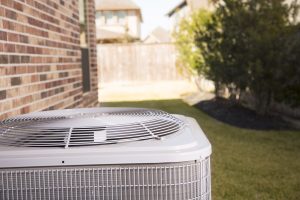 You probably already know that your air conditioner uses refrigerant (although you might have heard it called by a brand name, “Freon”). When an air conditioner isn’t working properly, homeowners often ask us this: “Does it just need more Freon?”
You probably already know that your air conditioner uses refrigerant (although you might have heard it called by a brand name, “Freon”). When an air conditioner isn’t working properly, homeowners often ask us this: “Does it just need more Freon?”
Sometimes, an air conditioner does only need to be recharged with refrigerant, a chemical blend of which there are actually many brands and types. But usually, it’s a bit more complex than this. To help you understand a bit more about refrigerants, their impact on the environment, and what happens when it runs low, we provide some pertinent information in today’s post.
To learn more or to schedule service for your AC system today, reach out to our air conditioning contractors in Union, NJ.
Why Your AC System Has Refrigerant
Refrigerant is able to absorb heat from the air in your home when a fan passes warm air over the evaporator coil in the system. The evaporation of refrigerant allows it to take on heat. This heat absorption cools the air returning to your home’s vents.
Then, refrigerant moves to the outdoor unit. It releases heat as it condenses at the condenser coil, transferring heat to the air around the unit. This cycle continues until the air inside reaches the setting on the thermostat.
Why You Shouldn’t Lose Refrigerant
Refrigerant is not the same as fuel. It’s not something that gets used up in the same way as natural gas or propane. Your air conditioner runs on electricity, as any homeowner knows from their summertime bills. Electricity powers a motor and compressor that help to pressurize refrigerant and pump it throughout the AC system.
Although heat is lost from refrigerant at the outdoor unit, the refrigerant itself should never vacate the system. Since refrigerant is so vital to the cooling process, your AC system is designed to keep it within the lines it moves through. If refrigerant is leaving the system, you have a problem.
What to Do about Refrigerant Leaks
Sometimes, a technician may recommend adding refrigerant to the system, or “recharging” it. However, it’s usually necessary to seal the point of the leak first and foremost.
Yes, this will cost more than just adding refrigerant. But it will make your air conditioner run smoothly for longer, reduce your bills, keep you from polluting the environment, and prevent major problems with the system.
You may notice a refrigerant leak by its signs:
- Increased temperatures.
- High energy bills.
- Nonstop AC cycling.
You should keep in mind, though, that these problems could indicate any number of malfunctions within the system. Problems with an AC are not always due to a refrigerant leak.
Adding the Right Refrigerant
Your system may not be designed to use certain refrigerants that are now deemed environmentally responsible by the EPA. R-22, the popular refrigerant used just a couple of decades ago, has now been deemed to be unsafe by the EPA as it contributes to ozone depletion, and is in the process of being phased out.
It’s still possible to find R-22 for use in an older system. However, it may be time for an upgrade. Costs of R-22 are rising, and your older AC system is likely operating inefficiently anyway. R-410A is the most popular refrigerant used today, and most modern home systems are manufactured for use with this safer chemical blend.
Max Sr & Paul Schoenwalder Plumbing, Heating and Air Conditioning, A Corp. installs and services air conditioners in Union, NJ. Contact us today.
